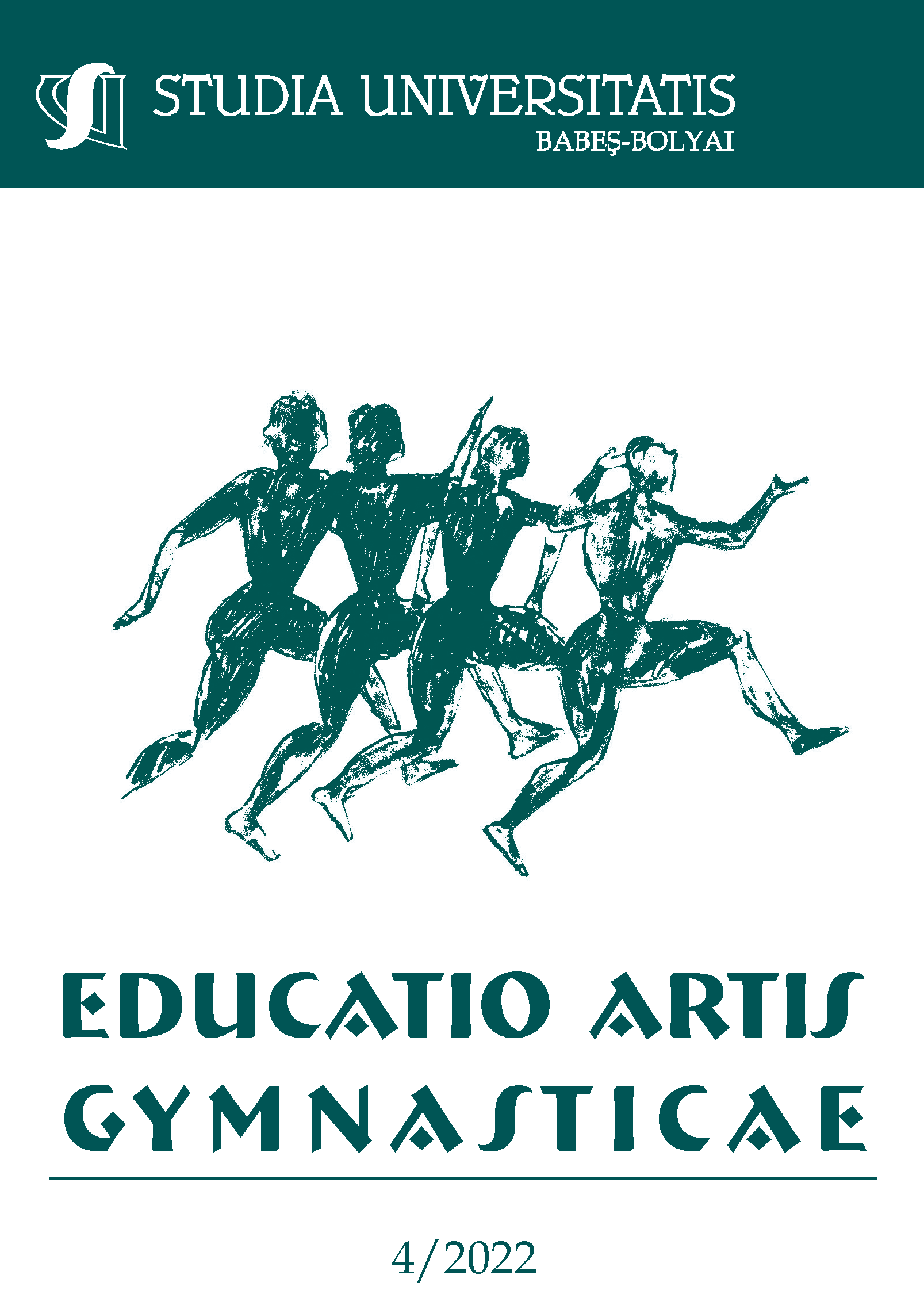COGNITIVE DEVELOPMENT THROUGH MOVEMENT GAMES IN ELEMENTARY SCHOOL PUPILS
DOI:
https://doi.org/10.24193/subbeag.67(4).39Keywords:
cognitive development, movement games, elementary schoolAbstract
Introduction. As one of the most fundamental activities of childhood, dynamic game can have a primary significance as a mean of recreation and gradually advance to a major pedagogical influence. Movement games are an ideal means of education, fulfilling the highest level of movement, motor and cognitive development, personality shaping and social integration, ensuring the formation of a strong profile of the primary cycle graduate. The way the student responds, applies and adapts to the rules imposed by the game directly influences memory, thinking, language, creativity, sensations and perceptions, thus, its implications hold a significant percentage in cognitive development. Objectives. 1) knowing of the implications of motion games in the cognitive development of primary-cycle pupils; 2) increasing the attractiveness of physical education lessons; 3) learn to spend free time as actively as possible. Methods. The knowledge test contains 10 items and was applied to 54 students in the 3rd and 4th grades in rural areas, divided into control group - 27 students and experimental group - 27 students, following the implementation of a dynamic game program applied to the experimental group during the school year 2021-2022. Knowledge testing verifies how they have understood the games and the ability to use, adapt or build them in a personalized way. Results. The knowledge test has a maximum score of 10 points, each question being scored differently. The average score for the experimental group is 9.11 points and for the control group is 6.27. The difference between the result obtained by the experimental group and the control group is 2.84 points, a difference that confirms the proposed objectives given the dynamic game program applied to the experimental group. Conclusion. Applied dynamic games aim to stimulate students’ thinking, attention, memory and creativity in a fun way that does not provide the fear of rejecting their own ideas, rewarding and encouraging all attempts to build new dynamic games.
References
Abdelkarim, O., Ammar, A., Chtourou, H., Wagner, M., Knisel, E., Hökelmann, A., & Bös, K. (2017). Relationships between motor and cognitive learning abilities among primary school-aged children. Alexandria Journal of Medicine, 53(4), 325-331. DOI: 10.1016/j.ajme.2016.12.004.
Carson, V., & Predy, M. (2019, May). Active Outdoor Play. Encyclopedia on Early Childhood Development, 1-7. Retrieved from https://www.child-encyclopedia.com/pdf/expert/outdoor-play/according-experts/active-outdoor-play.
Cârstea, G. (2000). Teoria și metodica educației fizice și sportului. București: Editura AN-DA.
Corbin, C. B., Pangrazi, R. P., & National Association for Sport and Physical Education. (2004). Physical activity for children: A statement of guidelines for children ages 5-12. National Association for Sport and Physical, 2, 1-28.
Matveev, L. P., & Novicov, A. D., (1980). Teoria şi metodica educaţiei fizice, Bucureşti: Editura Sport-Turism.
McCluskey, M., Al-shallawi, A.N., Penk, D., Bridges, J., Gilson, N., Hermens, H., Buurke, J., & Pandyan, A. (2021). Evaluating Associations between Physical Activity and Growth, Academic Attainment, and Socioeconomic Factors in Primary School Children -
A Prospective Cohort Study. Journal of Physical Activity Research, 6(2), 112-121. DOI: 10.12691/jpar-6-2-8.
Stănescu, M., Ciolcă C., & Urzeală, C. (2004). Jocul de mișcare- Metodă și mijloc de instruire în educație fizică și sport, București: Editura Cartea Universitară.
Șchiopu, U., & Verza, E. (1997). Psihologia vârstelor. Ediția a III-a revizuită. București: Editura Didactică și Pedagogică.
Wyver, S. (2019 May). The influence of outdoor play on social and cognitive development. Encyclopedia on early childhood development, 1-7. Retrieved from https://www.child-encyclopedia.com/pdf/expert/outdoor-play/according-experts/influence-outdoor-play-social-and-cognitive-development.
Yachmenev, N., & Rubanovich, V., (2017). Dynamics of morphofunctional state of schoolchildren of 6–7 classes in the academic year, depending on the organization of physical education. Novosibirsk State Pedagogical University Bulletin, 7(1), 191-202. DOI: 10.15293/2226-3365.1701.13.
Downloads
Published
How to Cite
Issue
Section
License
Copyright (c) 2022 Studia Universitatis Babeș-Bolyai Educatio Artis Gymnasticae

This work is licensed under a Creative Commons Attribution-NonCommercial-NoDerivatives 4.0 International License.






